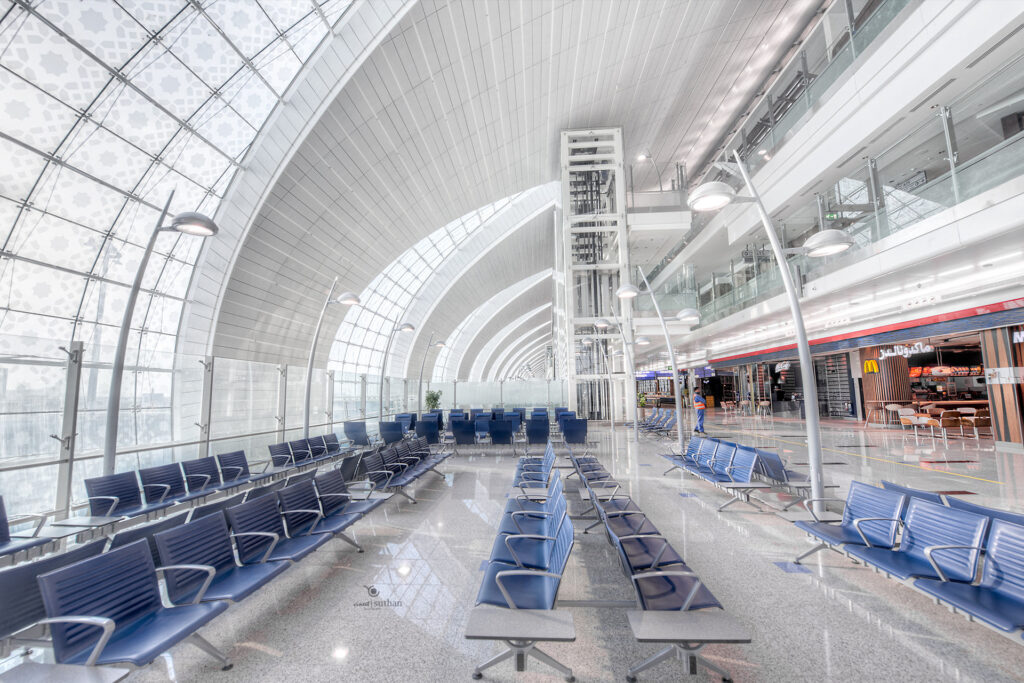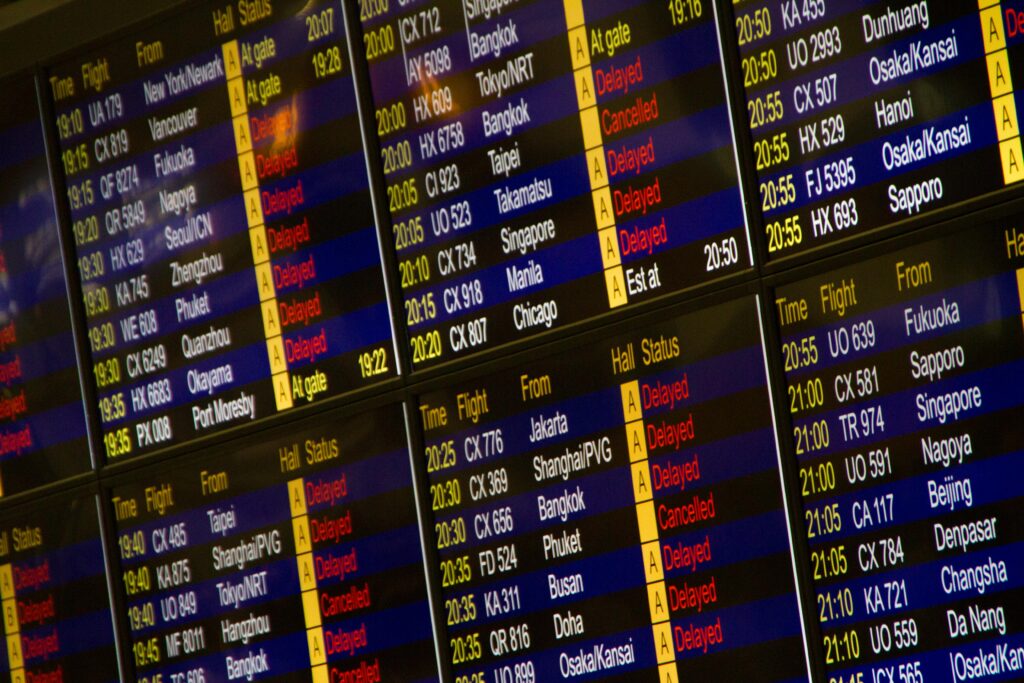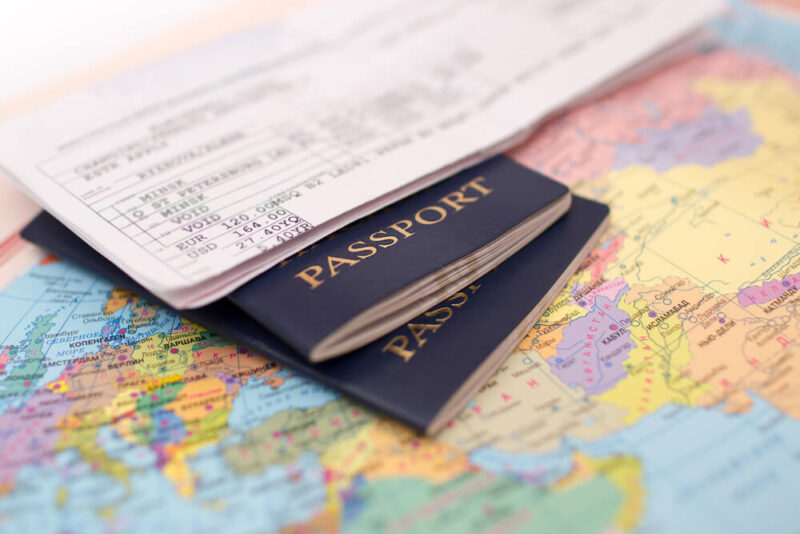
The Middle East air travel map just got redrawn overnight.
As the Iran-Israel conflict intensifies, travelers are facing massive flight cancellations, closed airspaces, and re-routed airlines from Dubai to Istanbul. Over 500 flights cancelled or delayed in the last 24 hours alone, and the list of affected airports and carriers keeps growing.
If you’re flying anytime soon in the region (or transiting through) here’s what you absolutely need to know.
Why Are Flights Being Cancelled?
Following the recent escalations between Israel and Iran, several countries in the region have begun restricting or closing their airspace to avoid security risks. Airlines are reacting fast: rerouting planes, suspending routes, and grounding fleets, especially those heading to or flying over conflict-prone zones.
The situation has directly impacted major commercial air corridors between the Gulf, the Levant, and parts of Europe and Asia.
What If You Have a Flight to the UAE Next Week? Find Out Here
These Middle East Airports Are Most Affected:
- Dubai International Airport (DXB) – UAE
- Emirates and FlyDubai cancellations piling up
- Sharjah International Airport (SHJ) – UAE
- Air Arabia suspending multiple regional routes
- Queen Alia International Airport (AMM) – Jordan
- Multiple cancellations; Etihad, Emirates, RJ affected
- Ben Gurion Airport (TLV) – Israel
- Near-total closure; only emergency/recovery flights allowed
- Imam Khomeini International Airport (IKA) – Iran
- Most international flights grounded
- Istanbul Sabiha Gökçen (SAW) – Turkey
- Rerouting around conflict airspace creating long delays
- Beirut-Rafic Hariri Airport (BEY) – Lebanon
- Limited activity amid rising regional alert levels
Expect cascading delays in Abu Dhabi, Doha, Muscat, and Kuwait City, even if they’re not the primary conflict zones.

Which Airlines Have Suspended or Cancelled Flights?
As tensions in the region escalate, several carriers have grounded or rerouted services with UAE flights cancelled across key destinations like Amman, Tehran, and Tel Aviv. Airlines are rapidly adjusting their schedules based on real-time developments and airspace closures.
Here’s the latest breakdown on flights cancelled (as of June 19):
Emirates Airlines
- UAE flights cancelled to Amman (Jordan) and Beirut (Lebanon) until June 22
- Routes to Tehran, Baghdad, and Basra suspended until June 30
- High chance of further disruption, especially for passengers transiting via Dubai
Etihad Airways
- All UAE flights cancelled from Abu Dhabi to Amman (until June 20)
- Tel Aviv flights suspended until June 22
FlyDubai
- All UAE flights cancelled to Iran, Iraq, Israel, and Syria until June 30
- Domestic and regional connections from Sharjah and Dubai are being rerouted or delayed
Qatar Airways, Oman Air, Kuwait Airways, EgyptAir, Royal Jordanian, Ethiopian Airlines
- These carriers are facing widespread rerouting, delays, and passenger rebookings
- Gulf-region departures, especially from UAE hubs, are being monitored closely
El Al Israel Airlines
- All outbound and inbound flights cancelled until June 23
- Operating only recovery flights for stranded passengers, UAE travelers to Israel are advised to delay bookings
Delta Air Lines
- Tel Aviv to New York JFK route suspended until August 31
- Travelers connecting from the UAE to U.S.-bound routes may experience long-term disruptions
Bluebird Airways
- Cancelled flights to Israel from June 13 to June 24
- Bookings from UAE and other GCC countries remain closed through June 30

Travel Advisories from Around the World
As the crisis unfolds, multiple governments have issued urgent travel advisories, with particular caution around UAE flights cancelled to conflict-affected zones:
UK Foreign Office:
- Advises against all travel to Israel, Iran, Lebanon, and northern Iraq
- Warns of major disruptions to both air and road travel
Nepal’s Ministry of Foreign Affairs:
- Strongly advises citizens not to travel to the Middle East
- For those already in countries like UAE, Iran, or Israel, they recommend staying indoors and avoiding non-essential movement
New Zealand Government:
- Closed its embassy in Tehran due to rising instability
- Issued a warning for citizens in the UAE and wider Gulf region to be prepared for communication blackouts and transport delays

What You Should Do If You’re Traveling?
Now, you must be aware of things you should do if you are travelling to or from any Middle Eastern country.
1. Check Your Flight Status Constantly
Airlines are changing schedules hour by hour. Use the airline app or website to stay updated.
2. Avoid High-Risk Transit Zones
Try rerouting via Doha, Muscat, or Riyadh instead of Amman, Beirut, or Tel Aviv.
3. Book Flexible or Refundable Tickets
Choose refundable options for upcoming travel or book through platforms that offer no-fee rescheduling.
4. Stay Registered with Your Embassy
If you’re a foreign national, register with your embassy or consulate in the Middle East.
5. Have a Plan B
Expect multi-hour layovers, overnight airport stays, or even delayed returns. Pack accordingly and consider temporary accommodation.
What Happens Next?
As tensions remain high, more airlines may join the cancellation list. Expect airspace restrictions to tighten if military activity increases, especially over Iraq, Iran, Syria, and Lebanon. This could impact long-haul flights between Asia and Europe as well.
Airlines like Emirates, Etihad, and Qatar Airways may reroute via Saudi airspace (adding 1–3 hours to some flights).
Final Word for Travelers
The Middle East is a major aviation crossroads and when conflict erupts, the ripple effects are global. Now that 500+ flights are grounded and major airlines are pulling routes, the best thing you can do is stay calm, stay flexible, and stay informed.
Bookmark this page for live updates on cancellations, airspace news, and airline advisories.



